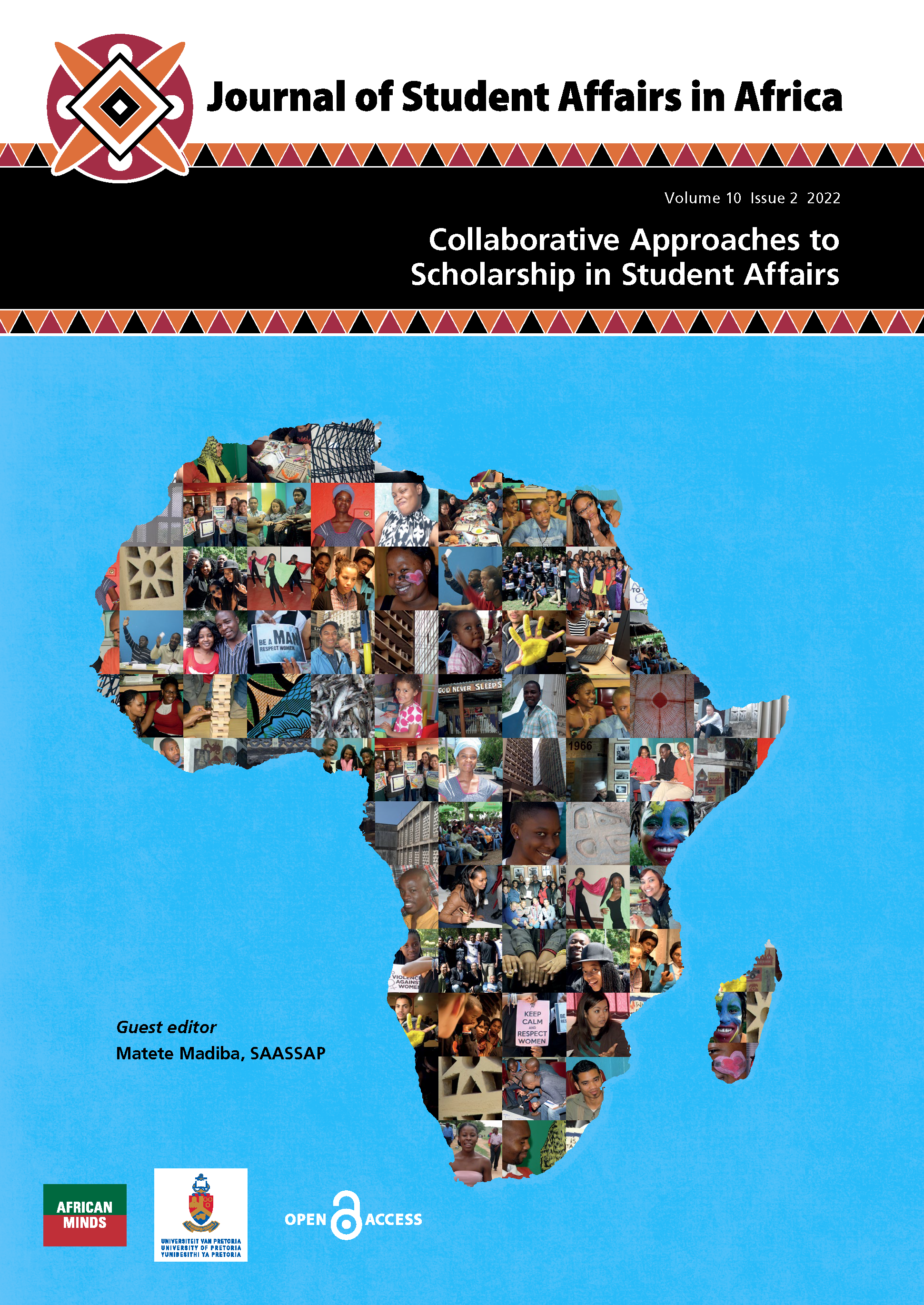Student affairs and services leadership in trying times: Student social behaviour project and psycho-social support interventions at a comprehensive university in south africa
DOI:
https://doi.org/10.24085/jsaa.v10i2.4369Abstract
The outbreak of COVID-19 and the lockdown measures that were widely implemented in response to the pandemic forced many of the forms of engagement and activities promoted by student affairs and services staff among students at universities to be curtailed or transformed – at first, so that they entailed no interpersonal contact and later so that they took place in line with health and safety protocols restricting contact. The moment of crisis required decisive, innovative leadership from this staff as they sought to help meet the needs of students who were now deprived of the benefits of the psycho-social, intellectual and physical engagements that had been provided by in-person contact on highly interactive campuses. Accordingly, the student affairs and services staff at North-West University in South Africa collaborated with students, leveraging their creative potential to reach out, create and implement new student support systems and programmes through structured activities that could take place online and in the form of strictly controlled contact sessions. In this context, two new initiatives were established at the university: a student behaviour project which sought to deploy student peers to promote adherence to COVID-19 occupational health and safety protocols among the student population; and a raft of psycho-social support interventions, including webinars, cultural and sporting activities, and residence activities which promoted student welfare including by helping students to manage the realities of the pandemic more effectively. This reflective article, authored by two of the North-West University student affairs and services staff responsible for launching and leading these initiatives, considers the kinds of collaboration among university staff and with students that informed the establishment and implementation of these projects. Focusing particularly on how these projects may have contributed towards increased levels of social capital among the students at the university at a moment of crisis, with a view to extract lessons that may be learned for the proactive development of student-support measures under similar conditions in future.
Additional Files
Published
Issue
Section
License
Copyright (c) 2022 Corrie Rheeder

This work is licensed under a Creative Commons Attribution-NonCommercial-ShareAlike 4.0 International License.
Authors who publish with this journal agree to the following terms:
Authors retain copyright and grant the journal right of first publication with the work simultaneously licensed under the Creative Commons Attribution Share-alike 4.0 International License that allows others to share the work with an acknowledgement of the work's authorship and initial publication in this journal.
Authors are able to enter into separate, additional contractual arrangements for the non-exclusive distribution of the journal's published version of the work (e.g., post it to an institutional repository or publish it in a book), with an acknowledgement of its initial publication in this journal.
Authors are permitted and encouraged to post their work online (e.g., in institutional repositories or on their website) prior to and during the submission process, as it can lead to productive exchanges, as well as earlier and greater citation of published work (See: The Effect of Open Access).


